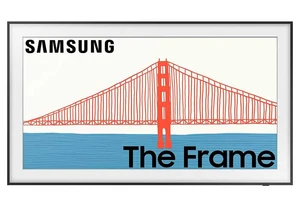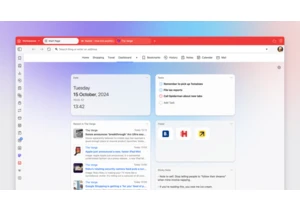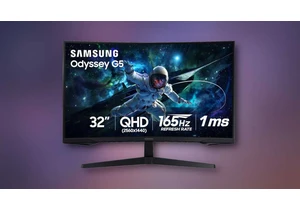The best way to watch Monday Night Football without paying for a full TV package or ESPN subscription could be short-lived if Disney gets its way.
Disney is suing Sling TV over its Day Passes, which provide access to Sling’s Orange bundle (including Disney-owned ESPN and more than 30 other channels) for $5, with weekend and weeklong passes also available for $10 and $15 respectively. By comparison, a full month of Sling Orange costs $46, and ESPN’s new streaming service costs $30 per month on its own.
With Day Passes, Sling is solving a real problem with sports streaming: Even if you’re only interested in a single game, you must pay for an entire month of service. Programmers like Disney should be embracing this approach to reach audiences who otherwise might not pay anything, but they’re too short-sighted to realize it.
Why Sling is right
While we all want more flexible options, new standalone offerings from the likes of Fox and Disney’s ESPN are insufficient. Both companies have intentionally set prices high—$30 per month for ESPN, $20 per month for Fox One—hoping to prolong the pay TV model that’s collapsing under them. The appeal will likely be limited.
We’ve already seen this play out with regional sports networks, most of which now offer their own standalone services in the $20 to $30 per month range. Despite offering more local team games than ESPN and Fox combined, these offerings aren’t gaining much traction because they’re just too expensive. The networks themselves have admitted it.
Meanwhile, younger viewers are tuning out. According to Front Office Sports, the average primetime NFL viewer is 62.5 years old, and ESPN chairman Jimmy Pitaro acknowledged that executives at the company worry about resonating with young audiences. A recent survey of sports executives found that 65 percent are concerned about maintaining live sports’ relevance.
So here’s a wild idea: Maybe make it easier for people to get in the door. Let them buy access to a game, or a weekend, or a week, and maybe they’ll come back for more. If not, at least they’ll have paid something instead of turning back to piracy. The old TV business model is falling apart regardless, so now is the time to try new things.
Disney: Sling didn’t ask us
As we’re learning now, Disney isn’t the one willing to experiment. While Sling previously indicated that it briefed its programming partners on the Day Passes, it never explicitly said that they were on board.
Disney, meanwhile, says it didn’t even get the memo. “Sling TV’s new offerings, which they made available without our knowledge or consent, violate the terms of our existing license agreement,” the company said in a statement to media outlets. It wants the court to make Sling remove Disney’s channels from the Day Passes.
Keep in mind that in the pay TV world, distributors like Sling typically pay a per-month, per-subscriber “carriage fee” to programmers like Disney in exchange for their channels. The per-subscriber fee for ESPN alone was reportedly around $10 per month a couple of years ago, and that cost gets passed onto customers.
The fact that Sling launched its day passes without Disney’s blessing raises some knotty questions, like: How much does Sling pay Disney when someone only signs up for a day? Is it counting per-subscriber carriage fees in a different way, or eating the month’s fee in hopes that day pass holders become regular subscribers? Were any other programmers on board with the idea, or was this all just a gambit to bring them to the bargaining table?
Sling’s PR department didn’t answer those questions, but said it plans to fight the lawsuit, which it called meritless. “We will vigorously defend our right to bring customers a viewing experience that fits their lives, on their schedule and on their terms,” the company said.
A long history of short-sightedness
Unfortunately, this kind of hardball hasn’t ended well for TV distributors in the past.
Back in 2015, Verizon tried to offer a flexible TV package for Fios customers, with a base channel lineup and a selection of “Channel Packs” for things like sports and news. Disney sued over it, and while Verizon initially claimed it was within its rights, it eventually watered down the offering and settled the lawsuit.
Then, in 2020, T-Mobile tried to launch a new TV service with two distinct packages—one with broadcast, news, and sports channels, and one focused on entertainment. Programmers flipped out, claiming that T-Mobile tricked them into splitting up their channels, and T-Mobile wound up exiting the TV business entirely.
With the bottom dropping out on the pay TV business, programmers have only now started embracing a modicum of flexibility, with companies like DirecTV offering “Genre Packs” for less than a typical pay TV package. But even that only happened because DirecTV was wiling to wage a PR war against Disney and subject its customers to extended blackouts.
These kinds of changes shouldn’t have taken a decade, and deep down, programmers know it. They’ve quietly bemoaned the destruction of the pay TV bundle, yet they did nothing to avert it.
With day passes, programmers like Disney have another chance to innovate on a tired business model and reach folks who might not otherwise even pay for their services. While it’s no surprise that they’re against it, hopefully Sling can force the issue.
Sign up for Jared’s Cord Cutter Weekly newsletter to get more streaming TV insights every Friday.
https://www.pcworld.com/article/2891377/disney-might-kill-the-best-streaming-idea-in-years.html
Accedi per aggiungere un commento
Altri post in questo gruppo

If you’ve been exhausted by the unstoppable deployment of AI chatbots

If you’re concerned that your favorite may be subsumed by the growing

I have yet to see an OLED gaming monitor go below the $400 mark, and


Split keyboards are hard to find, especially if you’re looking for so

If you want to upgrade your budget PC gaming setup without shelling o

